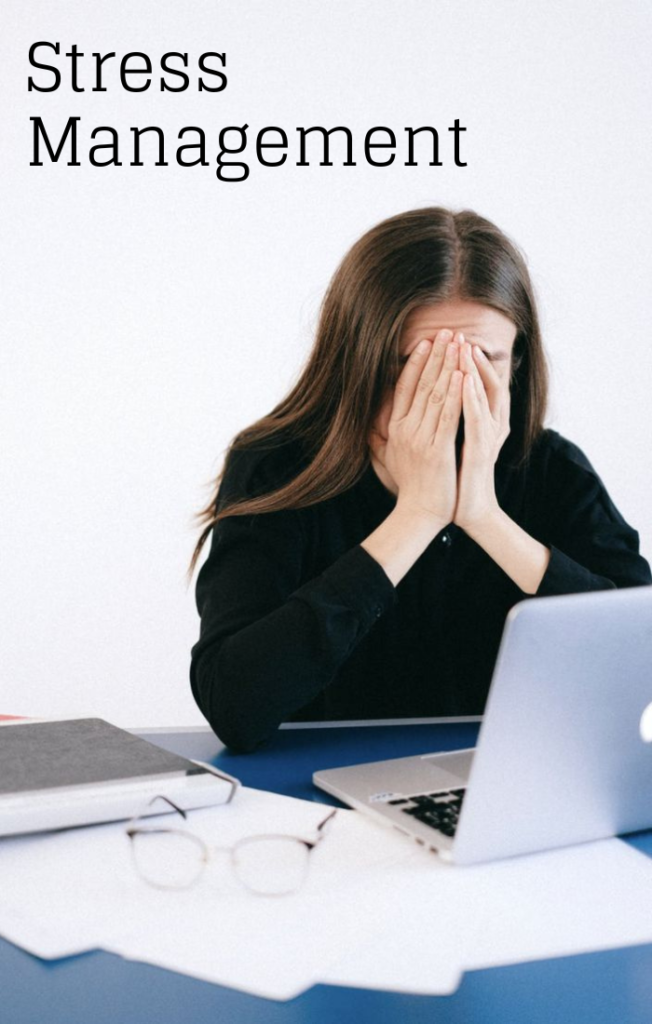In the world, we live in and in today’s life, stress has become a common companion in our lives, impacting both our physical and mental health. The need to know about different strategies to cope with stress is necessary to maintain your physical, emotional, and mental health. In this article, we’ll discuss how to reduce stress with some techniques or strategies that will help to reduce stress in any scenario.
Understanding Stress
Stress can be defined as a state of worry or mental tension caused by a difficult situation. Stress is a natural human response that prompts us to address challenges and threats in our lives. Everyone experiences stress to some degree.
Stress is a natural phenomenon that occurs when some challenge occurs. It is also the strength to know about your mental and emotional abilities. While some stress is important to remain motivated but too much stress or for a longer term can deteriorate your both mental and physical health and lead to various health issues. Understanding different types of stress and how your body reacts to them is essential for effective stress management.
Identifying Stressors
Identifying stressors involves recognizing and understanding the specific triggers that lead to stress in your life. These stressors vary from person to person as all individuals are different. Some people are stressed by financial or family problems and some are stressed by academic or work pressure. It is important to identify your stressors to overcome with your stress.
Here are some common stressors that individuals face in different situations:
- Work-related Stress
- Financial Concerns
- Relationship Issues
- Health Challenges
- Academic Pressure
- Major Life Changes
- Lack of Time Management

Stress Reduction through Lifestyle Changes
A. Significance of a balanced diet in stress management.
Maintaining a balanced diet is essential for stress management. Nutrient food can help in increasing your immune system and help you to cope with stress and pressure.
B. Promote regular exercise as a stress-reducing tool.
Regular exercise is a powerful technique for reducing stress. Physical activities like walking, running, jogging releases endorphins, which are natural stress fighters.
C. Importance of quality sleep in stress reduction.
Quality sleep plays a vital role in stress reduction. Adequate and restful sleep allows the body to relax the brain and overthinking, recover, enhancing its ability to handle stress effectively.
D. Benefits of staying hydrated.
Water is an essential solution to all problems. Sometimes, not taking enough water can lead to health problems, so maintaining proper hydration levels is vital for stress reduction and overall well-being.
Mind-Body Techniques for Stress Reduction
Stress is a common challenge in modern life, affecting both our physical and mental well-being. As stress is related to the mind, overthinking, and good practice of mind are important. Mind-body techniques include both mind and body and try to soothe you mentally to relax your body.
In this section, we will explore some of the most effective mind-body techniques for stress reduction, which will help to reduce stress, considering both mental and physical factors.
Mindfulness Meditation: Mindfulness is a type of meditation in which you focus on being intensely aware of what you’re sensing and feeling in the moment, without interpretation or judgment. You can do it by sitting lonely and quiet place, taking deep breaths, and trying to push away your thoughts with breath.
Deep Breathing Exercises: Deep breathing exercises are simple yet effective for stress reduction. By taking slow, deliberate breaths, you activate your body’s relaxation response. These exercises can be performed anywhere and are especially useful during moments of tension.
Yoga: Yoga is a holistic practice that combines physical postures, controlled breathing, and meditation. It enhances flexibility, balance, and strength while promoting relaxation.
Progressive Muscle Relaxation: Progressive muscle relaxation involves systematically tensing and relaxing different muscle groups. This technique helps release physical tension and can be particularly useful for individuals who experience stress-related muscle stiffness or discomfort.
By understanding and implementing these mind-body techniques in your daily routine, you can reduce stress and regular doing can also keep you away from stress for your life time.
Time Management and Stress
One of the main stressors in our today’s life is not having enough time. We have to do more tasks than the time we have. Not doing proper time management leads to stress. In this section, we will explore the relationship between time management and stress reduction, providing practical strategies and tips for better managing your time to achieve a healthier, less stressful life.
Prioritizing Tasks: Effective time management begins with prioritization. If you have many tasks to do, prioritize from most important to least important. Make a to-do list. Do the tasks that are important first and rest of the tasks later.
Setting Realistic Goals: Unrealistic goals and overcommitment can lead to chronic stress. This section will guide you in setting attainable goals and expectations, helping you reduce the pressure of unmet objectives.
Creating Schedules and To-Do Lists: If you have many tasks to do, making a schedule or things or a to-do list can help you stay active and motivated. These tools can help you to remember your tasks and do your tasks on time.
Avoiding Procrastination: Procrastination often leads to last-minute rushes and increased stress. Provide insights into overcoming procrastination tendencies and staying focused on your tasks.
Learning to Say “No”: Overcommitting is a common cause of stress. Set boundaries with different relationships and learn to say “No” to others’ work if you are busy.
By developing effective time management skills, you can enhance your productivity and it’ll reduce the stress of not having enough time, without stress you can do your tasks more efficiently without any tension.

Social and Emotional Support
Dealing with stress can be overwhelming but you don’t have to do it alone always. You have people around you that loves you and taking care of you. When you are bursting out, you can talk to someone around you, they may guide or help you in your situation. Support from someone can be a great technique to reduce stress and relax your heart and mind.
Open Communication: Effective communication is key to seeking support. Talking openly with friends, family, or even a therapist about your stressors and emotions can help you reduce your stress.
Identifying Supportive Relationships: It’s important to recognize the relationships that provide genuine support. Identify individuals in your life who can offer emotional assistance during stressful situations.
Reaching Out: Reaching out to someone when you feel low is important. When you are fed up and do not know what to do, maybe some of your loved ones or trust worthy people can help you. Openly talk to them about your situation. This will help make your heart brust low.
Online and Community Resources: Sometimes, support can come from various sources, including online communities and resources. If you have no one near you or if you don’t want to talk to someone, you can join online communities and talk to strangers about your situations.
This section helps you to identify your social environment and relations. You can talk to someone if you are disturb. Cry your heart out, it will reduce the pressure and you’ll feel easy and relaxed. Also social and emotional support is and essential part of stress management. Building a strong social circle helps you to overcome any challenge.
Monitoring Stress and Seeking Professional Help
In the fast world, we live in, stress management is difficult to do. However, monitoring stress regularly can help you to live a peaceful life. In this section, we’ll discuss the importance and technique of monitoring stress and seeking professional help when needed to live a stress-free life.
1. Regular Self-Assessment: Your First Line of Defense
Why Self-Assessment Matters: Self assessment is important to recognize your mental and emotional health. If you are feeling diturbing, try to consult someone.
Recognizing Stress Signs: Learn to identify the physical, emotional, and behavioral signs of stress like anger, impatience, afraid, unable to enjoy yourself, irritation, etc.
Tracking Your Triggers: Track your triggers, identify signs of your stress and consult to some specialist.
2. Knowing When to Seek Professional Guidance
Recognizing Overwhelming Stress: Find out when your stress crosses the threshold and necessitates professional help.
Seeking Support: Understand the importance of reaching out to healthcare providers and therapists.
Accessing Professional Help: Learn about the various avenues available for seeking assistance. First talk to your family or someone close and go to specialist with them.
3. The Therapeutic Journey: What to Expect
Inside Therapy Sessions: Gain insights into what typically happens during therapy or counseling sessions for stress-related issues.
Diverse Approaches: Explore the various therapeutic approaches available and determine which may be the best fit for you.
The Benefits of Professional Guidance: Learn how professional assistance can empower you to regain control over your life and reduce stress.
4. Building Resilience and Long-Term Stress Management
Stress Resilience Techniques: Discover methods for building stress resilience and effectively managing stress.
The Role of Professional Guidance: Understand how professional help can guide you to take you out of the dark and live a peaceful life.
Management Plan: Learn about creating a personal management plan to deal with stress on your own.

Conclusion
As we wrap up our journey through the art of stress reduction and well-being, it’s crucial to remember that stress is an inevitable part of life. However, how we manage it can make all the difference. This article has guided you through various strategies to combat stress effectively, leading to a healthier, more balanced life.
Understanding stress, identifying stressors, and making lifestyle changes that prioritize nutrition, exercise, sleep, and hydration are all crucial steps. Mind-body techniques like mindfulness, deep breathing, yoga, and progressive muscle relaxation offer invaluable tools in your stress-reduction arsenal.
Time management is a skill worth honing, as it brings structure and efficiency to your daily life, reducing the feeling of being overwhelmed by tasks. Furthermore, the importance of social and emotional support cannot be underestimated; seeking help from friends, family, and even professionals can be a lifeline during challenging times.
Lastly, recognizing the signs of stress and knowing when to seek professional guidance are acts of self-compassion. The therapeutic journey, diverse approaches to therapy, and building resilience through professional assistance can empower you to lead a healthier, more balanced life.
Stress reduction is not a one-time task but an ongoing commitment to your physical and mental health. By applying these practical strategies, you’ll be better equipped to embrace life with resilience, balance, and a lighter heart. May your path be filled with calm, well-being, and a future free from excessive stress.


